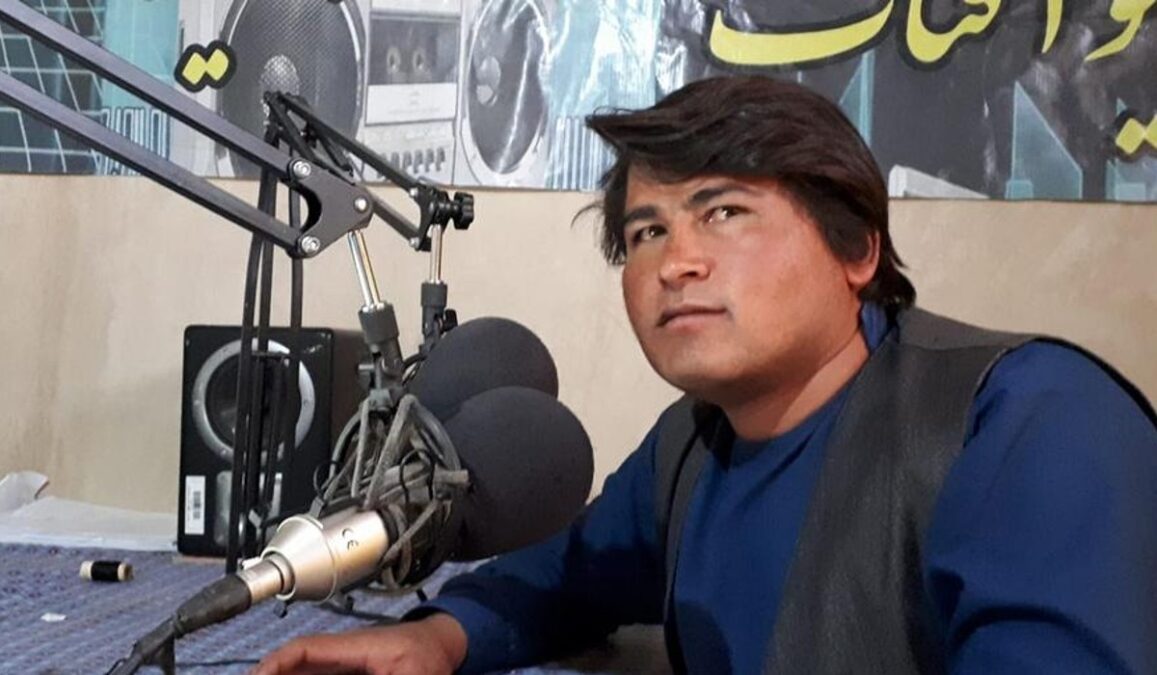Following the fall of the previous government, the situation altered for media outlets and journalists in Afghanistan, leading to the loss of jobs and the closure of many media organizations.
The same has happened to media outlets in Daikundi where at least 20 journalists and media workers lost their jobs after the Taliban takeover.
Lack of access to information, censorship, security issues and economic challenges are the main problems faced by media outlets under Taliban rule.
Mohammad Reja, a photographer and journalist from Daikundi who has sought refuge in Iran, said the fall of the previous government was an end to everyone’s access to the law.
He said that nearly 10 journalists have remained in Daikundi following political changes in the country.
“There is no hierarchy and laws in the Taliban administration,” he said. “They do anything against anyone they want.”
Mirza Hasani, journalist, still under Taliban custody
Colleagues and friends of Mirza Hasani, a journalist who has been arrested by the Taliban, said he always used to defend the people’s rights and human rights and ask for justice for them. They said that Hasani was never part of any “foreign or intelligence agency.”
Following the fall of the previous government last August, Hasani went to Kabul, Mazar-e-Sharif, and Herat cities along with his children. He finally got passports for his family and decided to move to Iran for a safer life, but he was arrested in District 12 of Herat city in the last week of May.
His family asked national and international organizations to seek justice for Hasani and ensure his release by the Taliban.
They said that Hasani was arrested on charges of baseless “allegations” and that he must be released.
Hasani was the owner of Radio Aftab, a local radio station in Daikundi, a province in central Afghanistan neighboring Bamiyan. He was arrested on charges of links with the national resistance front, an anti-Taliban military movement, and human rights organizations as his colleagues and friends described.
His wife and brother succeeded to meet him when he was in the police district 6 custody, then at the intelligence agency and later at the Taliban police command in Herat. Initially, his family was even told that there is no evidence against him and that he will be released soon, but more than two months later, he has not been freed so far.
Hasan’s family
Hasani’s wife told Amu that they met her a week ago in a Taliban intelligence detention center after two months, but the Taliban has not said when he will be released.
She said that the Taliban has said that an investigation is underway and that no one has the right to meet him during this process. Hasani was tortured in the first days of his arrest in Herat, her family said.
Hasani’s wife and brother said they have repeatedly visited various human rights journalists’ supporter organizations but their efforts have not ended up well.
Meanwhile, Hasani’s family accused media supporting organizations of inattention to his case, saying they have not made any attempt in this regard.
But the Afghanistan journalists’ committee in a statement in June said that Mirza Hasani is among the journalists who are still under Taliban custody.
The committee said that two more journalists are also under Taliban custody and that they all need to be released.
Media organizations have faced a lack of access to information and many other restrictions under the Taliban rule since last August. Following the fall of the republic government, thousands of journalists lost their jobs and hundreds of media outlets stopped operating for various reasons, including economic issues.
Taliban officials in Herat did not comment on Hasani’s arrest.




